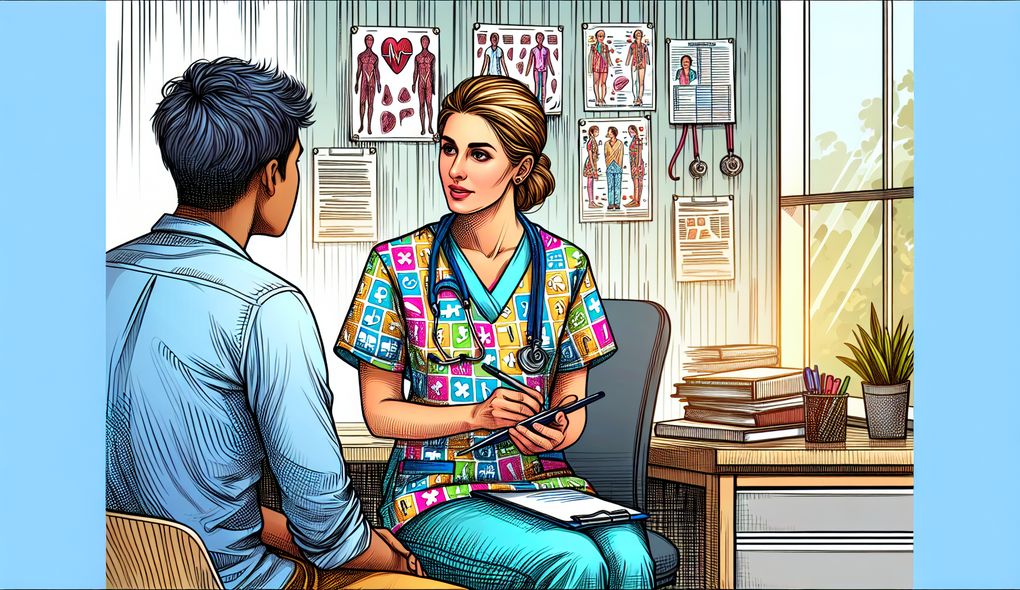How do you prioritize patient care when faced with limited resources?
INTERMEDIATE LEVEL

Sample answer to the question:
When faced with limited resources, I prioritize patient care by focusing on the most critical needs first. I assess the patients' conditions to determine the level of urgency and prioritize accordingly. I also collaborate with other healthcare professionals to come up with creative solutions and alternative resources to ensure the best possible care for all patients. Additionally, I constantly communicate with the patients and their families to manage their expectations and provide updates on the situation. Although limited resources can be challenging, my goal is always to provide the highest level of care within the given constraints.
Here is a more solid answer:
When faced with limited resources, I utilize my strong analytical and critical thinking abilities to carefully assess the situation and determine the most effective allocation of resources. I prioritize patient care based on the urgency and severity of their conditions, ensuring that those in critical need receive immediate attention. To manage multiple tasks effectively, I collaborate with the healthcare team to develop innovative solutions and alternative resources. As a leader, I take a proactive approach by advocating for additional resources and advocating for the needs of the patients. I am adaptable and flexible, constantly seeking opportunities to optimize resources and improve patient outcomes. For example, during a period of limited staffing, I implemented a patient acuity system that helped us allocate resources based on patient needs, resulting in more efficient care delivery and improved patient satisfaction.
Why is this a more solid answer?
The solid answer expands on the basic answer by providing specific examples of how the candidate utilizes their skills and experience to prioritize patient care. It demonstrates their analytical and critical thinking abilities, ability to manage multiple tasks effectively, leadership capabilities, and adaptability and flexibility. However, it can be further improved by including more details and examples of how the candidate collaborates with the healthcare team and communicates with patients and their families to ensure the best possible care.
An example of a exceptional answer:
When faced with limited resources, my approach to prioritizing patient care is comprehensive and strategic. I start by conducting a thorough assessment of the situation, considering the severity of patients' conditions and potential risks. Based on this assessment, I create a prioritization framework that takes into account factors such as urgency, potential impact on outcomes, and available resources. This framework helps me make informed decisions and allocate resources effectively. I actively collaborate with the healthcare team, seeking their input and expertise to identify innovative solutions and alternative resources. Communication plays a crucial role in this process, and I ensure that patients and their families are well-informed about the situation and involved in the decision-making process. I believe in transparency and engaging in open dialogue to manage expectations and address any concerns. In addition to immediate actions, I also take a proactive approach by identifying opportunities for process improvement. By analyzing data and identifying trends, I can optimize resource utilization and enhance the overall quality of patient care. For example, in a previous role, I implemented a patient triage system that helped us prioritize care based on the acuity level and resource availability, resulting in improved patient outcomes and increased efficiency. Overall, my approach to prioritizing patient care in the face of limited resources is grounded in sound judgment, collaboration, effective communication, and continuous improvement.
Why is this an exceptional answer?
The exceptional answer provides a comprehensive and strategic approach to prioritizing patient care when faced with limited resources. It demonstrates the candidate's skills and expertise in assessment, decision-making, resource allocation, collaboration, communication, and process improvement. The candidate emphasizes the importance of involving patients and their families in the decision-making process and utilizing data analysis to optimize resource utilization. The answer also includes a specific example of implementing a patient triage system to support the candidate's approach. The focus on sound judgment, collaboration, effective communication, and continuous improvement sets the answer apart from the basic and solid answers.
How to prepare for this question:
- Familiarize yourself with the concept of resource allocation in healthcare settings and understand the potential challenges and ethical considerations involved.
- Reflect on your previous experiences of working with limited resources and consider specific examples that highlight your skills and approach to prioritizing patient care.
- Think about your communication and collaboration skills and how you can effectively engage with the healthcare team and patients and their families in the decision-making process.
- Consider the importance of data analysis and process improvement in optimizing resource utilization and enhancing patient outcomes.
- Research and stay updated on healthcare regulations and best practices related to resource allocation and patient care.
What are interviewers evaluating with this question?
- Analytical and critical thinking abilities
- Ability to manage multiple tasks and prioritize effectively
- Leadership capabilities
- Adaptability and flexibility

